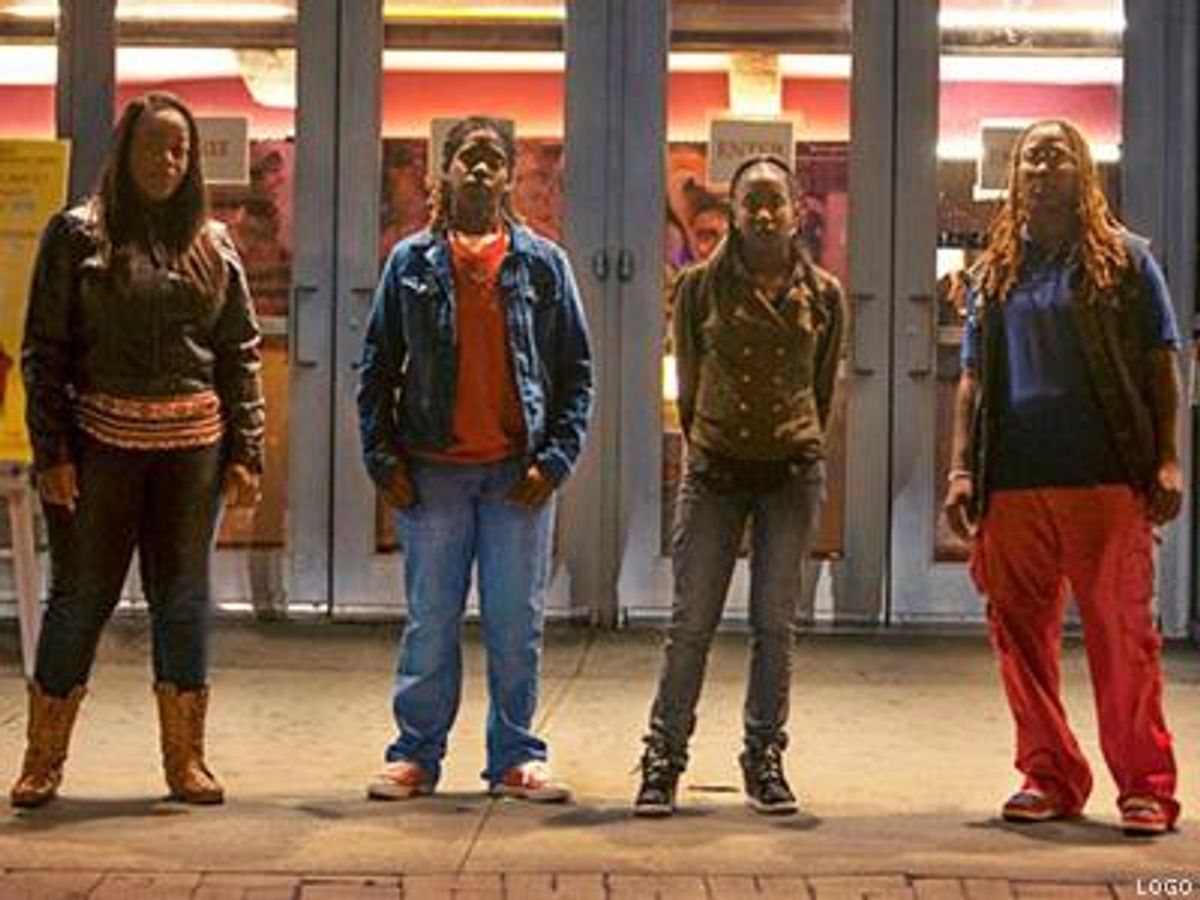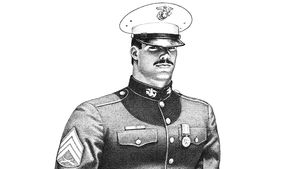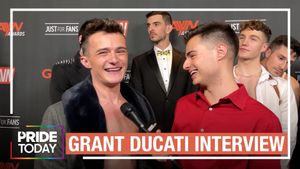Last week a white gunman massacred nine African-Americans -- including 41-year-old Democratic state Sen. Clementa Pinckney -- at the nearly 200-year-old Emanuel African Methodist Episcopal Church in South Carolina. The church had been destroyed by protesters in 1822 after cofounder Denmark Vesey and several others planned a slave revolt; Vesey was executed and, later, his son was deported.
That an angry young white man with ties to Confederate States of America, a Christian extremist hate group whose members believe that that the Confederacy never surrendered during the Civil War, would shoot up a historically black church in the South does not surprise me. Our country has lived with decades of hate and racism aimed at people of color, especially African-Americans, and at anyone on the LGBTQ spectrum (among others).
What did make me go "hmm" is the fact that this white gunman was "apprehended peacefully." After a slew of unarmed black men and women (including trans women like Mya Shawatza Hall) were killed by police despite being unarmed, it's a further injustice that there's such a disparity in how justice is meted out on the streets and in the courts in this country.
Such is the case in the riveting new documentary, Out in the Night, which will premiere Monday at 10 p.m. Eastern as part of a new partnership between the PBS documentary series POV (now in its 28th season) and the newly launched Logo Documentary Films division.
The award-winning film looks at the case of four black queer and gender-nonconforming Newark, N.J., women who were arrested after a fight in New York's West Village in 2006. The women had come to the gay-friendly neighborhood to be among their peers, but they were threatened by Dwayne Buckle, who was peddling his DVDs outside an IFC theater. First he attacked them verbally, promising to "fuck them straight!" and then later, physically, choking one woman while astride her.
When the women fought back, the man was stabbed and the women were arrested on charges of gang assault and attempted murder.
The media went crazy over the case, dubbing them "killer lesbians," "a wolf pack," and other racist and homophobic terms meant to stir public attention. Among the headlines were the New York Post's "Lesbian Gang -- Stab Shocker," the
New York Daily News' "Girls Gone Wild! Lesbians Locked Up in West Village Beat Down," and even
The New York Times' "Man Is Stabbed in Attack After Admiring a Stranger." (In the documentary, New York Post reporter Laura Italiano brags about coming up with "seething sapphic septet.")
The latter might be the most outrageous, because according to witnesses, and the women who were later locked up for the crime, the man did not merely admire. He cajoled and threatened violence, and according to video footage shown at trial and in the documentary, he physically attacked one of the women first before the others came to her aid. A handful of male bystanders also came to the aid of the women, and one woman pulled out a kitchen knife she kept in her purse for protection.
In the ruckus, Buckle was stabbed. Don't worry, he lived. But all seven women at the scene were arrested. Three pleaded guilty to avoid a trial and got light sentences. The remaining four -- Renata Hill, Patreese Johnson, Venice Brown, and Terrain Dandridge--maintained their innocence. They all got stiff prison sentences for the crime.
This is all public record, of course, but what is most fascinating is hearing from these women directly and seeing some of the evidence that clearly didn't impact jurors (the police officer who recovered Johnson's knife at the crime scene testified in court that he saw no blood on it, for example, and it may have actually belonged to one of the men who stabbed Buckle).
Director and producer blair dorosh-walther (who uses both male and female pronouns and identifies as gender-nonconforming) spent nine years working with the four women, dubbed by some supporters "the New Jersey Four." S/he lets the women talk, but the moments of silence feel even more significant.
One stark visual: Many of the women were butch or gender-nonconforming and, clearly, more threatening to the all-white jury of mostly women. Though Buckle was also African-American, it seems clear that the white women on the jury found this "roving pack of black lesbians" a clear threat, even though the defense even showed surveillance footage of Buckle on top of one of the women, choking her. I'd hope if that were happening to me, my friends would also intervene with whatever they had at hand. Would we wind up in prison too? Probably not, because I am not poor, young, or dark-skinned.
Thanks to blair dorosh-walther's skills, there's a lot for a cinephile to love about Out in the Night, but for a human, an activist, a queer or trans person, this sensational case, the injustice of it and all the failings of the justice system when it comes to black lives, may just enrage you even more.
If you miss the Monday simulcast, the film will stream on POV's website, www.pbs.org/pov/outinthenight/, June 23-July 23.



















































































